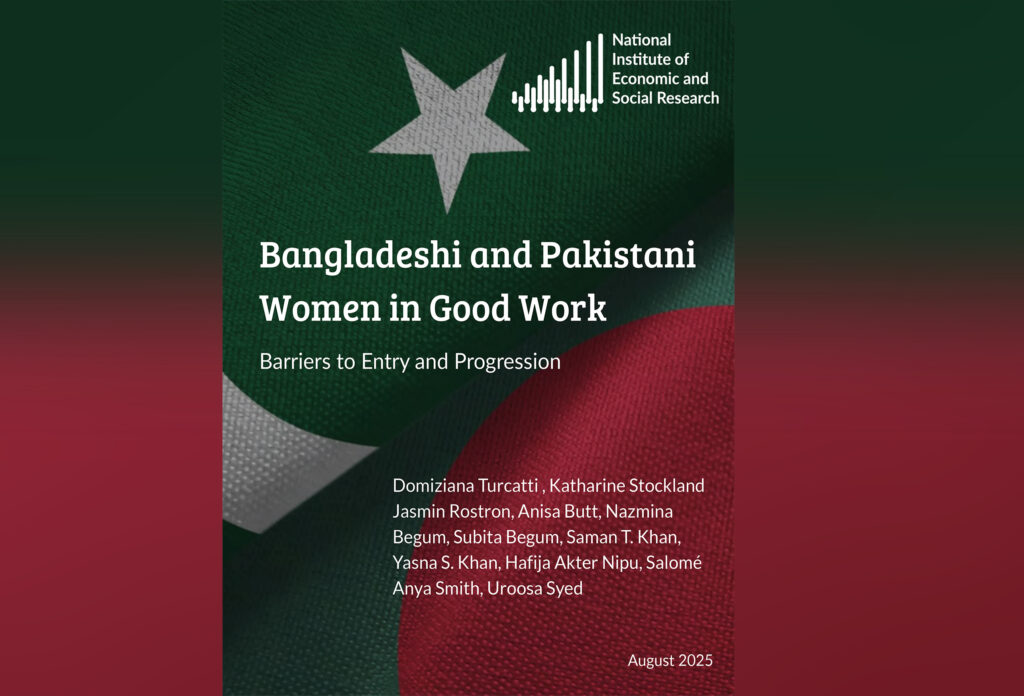
Fatima Raza Hassan
A new report commissioned by London’s City Hall has revealed stark inequalities faced by Bangladeshi and Pakistani women in the capital’s job market, urging employers, local leaders, and the government to take immediate action.
The study, Bangladeshi and Pakistani Women in Good Work: Barriers to Entry and Progression, conducted by the National Institute of Economic and Social Research (NIESR), found that nearly half (48.1 percent ) of Bangladeshi and Pakistani women in London were economically inactive in 2022, with unemployment rates more than three times higher than those of men from the same communities (16.9 percent vs 5.5 percent ). Their employment rate was also 17 percentage points lower than White British Londoners and 33 points lower than White women (ONS, 2024).
Persistent pay gaps and workplace barriers

The research highlights significant pay disparities, with Pakistani women facing a 60 percent gender pay gap compared to men from their ethnic group — the largest of any demographic — while Bangladeshi women experience a 50 percent gap.
Key barriers include workplace bias, lack of flexible working options, limited childcare access, and exclusion from professional networks. Many women, particularly those who migrated to the UK as adults, also struggle with unrecognised qualifications, digital skills gaps, and visa restrictions. Some reported feeling pressured to change their names to secure job interviews.
The report also highlights the role of racism and discrimination in shaping employment outcomes for Bangladeshi and Pakistani women. Many of those interviewed reported bias from employers against ethnic or Muslim-sounding names at recruitment, witnessing or experiencing racist behaviour in the workplace, unequal career progression compared to White British colleagues, exclusionary stereotyping, discrimination against women who wear a hijab, and insufficient support from HR or management when facing such challenges.
City Hall’s response
The report recommends improving outreach, flexible work policies, recognition of overseas qualifications, and clearer career progression pathways.
It also suggests employers diversify recruitment, support mentorship and training, foster inclusive workplace cultures, and monitor pay and progression gaps. Local authorities and the GLA are encouraged to connect employers with communities, expand training and childcare awareness, and incentivise inclusive practices. At the national level, targeted employment programmes, childcare provision, recognition of international qualifications, and supportive immigration policies are urged.
Deputy Mayor for Communities and Social Justice, Dr Debbie Weekes-Bernard, said, “This research outlines how prejudice, discrimination, and a lack of support severely limit opportunities for Bangladeshi and Pakistani women. We’re working with businesses and communities to dismantle these barriers.”
City Hall initiatives like the Workforce Integration Network (WIN) and the London Anchor Institutions’ Network (LAIN) aim to boost employment opportunities for underrepresented groups. Since 2021, WIN has supported 1,500 young people from minority backgrounds through partnerships with major employers, including the NHS and BBC Studios.
Experts urge systemic reform
Professor Adrian Pabst Deputy Director for Social and Political Economy NIESR stressed the need for “inclusive career progression” and policy reforms shaped by women’s experiences.
“Too often, cultural factors are overstated as an explanation for economic inactivity, rather than recognising structural issues such as employer bias, discrimination, and the lack of inclusive workplace policies,” he said.
Senior Social Researcher Dr Domiziana Turcatti praised the report’s community-led approach, calling it a model for participatory policymaking. The findings come ahead of the mayor’s upcoming Inclusive Talent Strategy, which aims to connect Londoners with better job opportunities.
(Credit: FreePix)